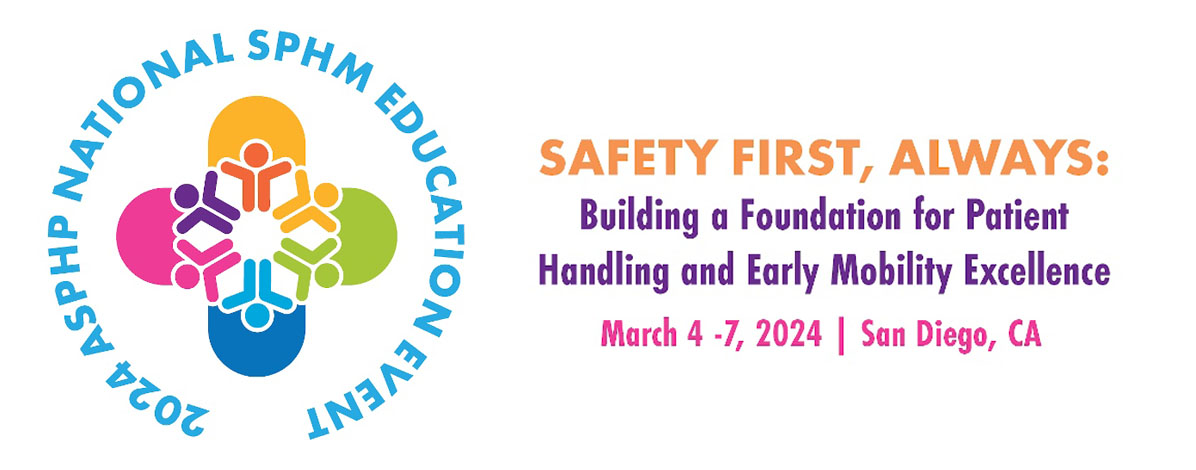Tags: Geriatrics/ Aging, Long Term Care/ Skilled Nursing, Patient Falls, Safety Culture / Worker Protection
Aug 13, 2025 – Addressing Mechanical Lift-Related Resident Injuries through Human-Centered Design
Addressing Mechanical Lift-Related Resident Injuries through Human-Centered Design
Presented by Julie Apold, PhD
Live and recorded on Aug 13, 2025 from 2 PM – 3 PM Eastern FREE to ASPHP Members
Overview
Resident injuries — including fatal incidents — related to the use of mechanical lifts remain among the most frequently reported serious adverse safety events in Minnesota nursing homes. Traditionally, organizational responses to these incidents have focused on policy reviews and additional staff training. However, a deeper analysis of reports submitted to the State of Minnesota reveals that the root causes often stem from equipment and process design flaws, rather than solely a lack of knowledge or inadequate training.
To address this persistent challenge, the LeadingAge Minnesota Foundation provided funding for a comprehensive research project that went beyond traditional training-focused interventions. The project involved in-depth analysis, on-site interviews, and direct observations to uncover how design issues contribute to resident injuries. Importantly, the project prioritized human-centered design principles, engaging staff, residents, and families early in the process to ensure that the resulting recommendations are practical, realistic, and reflective of daily care realities.
This session will share the project’s key findings and actionable design recommendations that support the effective, safe use of mechanical lifts. Participants will gain insights into how integrating human factors and ergonomics into equipment and process design can significantly reduce adverse events and create safer care environments for residents and staff alike.
Objectives:
- Recognize the common root causes of mechanical lift-related injuries beyond training and policy compliance.
- Understand how human-centered design and ergonomics can address safety gaps inherent in equipment and processes.
- Apply practical design recommendations and process improvements that enhance lift safety in daily care operations.
- Engage frontline teams, residents, and families in creating safer care environments through collaborative design thinking.
Meet the Speaker
 Julie Apold serves as the Vice President of Quality & Performance Excellence at LeadingAge Minnesota, where she leads the development and implementation of strategies that empower aging services providers to embed quality improvement, safety, and performance excellence into their organizational culture.
Julie Apold serves as the Vice President of Quality & Performance Excellence at LeadingAge Minnesota, where she leads the development and implementation of strategies that empower aging services providers to embed quality improvement, safety, and performance excellence into their organizational culture.
With more than 20 years of experience in healthcare safety and quality across the continuum of care, Julie brings deep expertise in human factors, systems thinking, and organizational change. She is the creator and director of several cornerstone programs at LeadingAge Minnesota, including the Performance Excellence in Aging Services, Safe Care, and Quality Specialist Certificate programs. In addition, she provides leadership to the association’s Quality Committee.
Julie holds a PhD in Human Factors and Ergonomics from the University of Minnesota, where her work focused on optimizing systems and processes to improve care outcomes and organizational performance.
Provider approved by the California Board of Registered Nursing, Provider Number CEP 15826, for 1 contact hour.
*You must register to be able to access to the webinar. Check your spam folder if you do not receive the registration email after you register.
This webinar is free for all ASPHP members. Please use the below link, log in to register at no cost.
If you are not an ASPHP member, you can still register for the webinar using the link below.
Want to become ASPHP member? Join Now & Save

